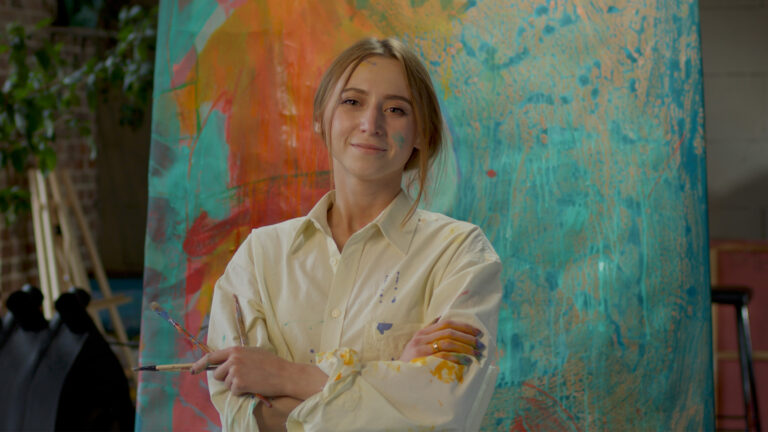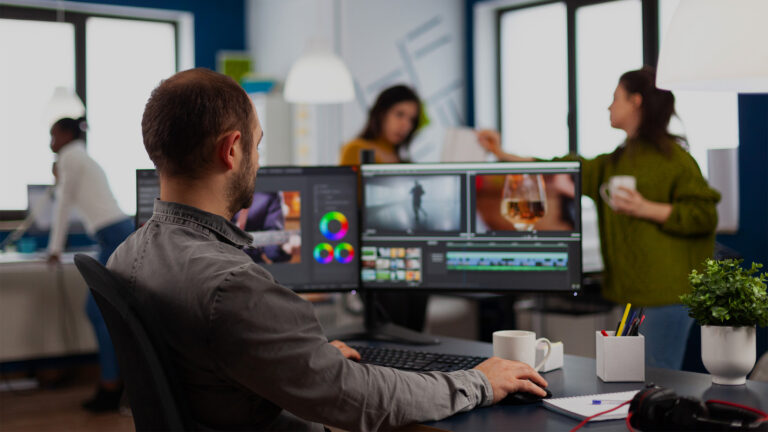The only constant in life is change, right? And change brings challenge.
As we’re all trying to carve a similar path through the COVID-19 jungle, I reached out to some key industry figures (and friends) to see how they’re handling things, and find out whether they’ve found a clear trail forward for their remote teams and systems.
Please meet the expert guessed who joined last week’s webinar:
Paul Nicholson, Senior VP of Production and Technology for Showtime Networks, is responsible for adapting the technical needs of his in-house creative agency, across everything from print to digital video.
Laurel Dusenberry is the VP and Creative Director for CBS Television Network, where she uses her laser-focus on the network’s creative and editorial outputs.
Reed Kaufman is the VP of Media Workflows for Fox Sports. Among his many hats, Reed oversees production from the network’s in-studio shows to huge remote productions like the Super Bowl.
Before we dive in, I’d like to say a huge thank-you to them for taking the time to share their understanding and insight, and also to our audience of talented, engaged professionals whose questions provided much of the direction for this video.
Editor’s note: Each section of the video is linked for easy viewing in new tabs. If you’d rather stay on this page, we’ve included start times so you can manually scrub in the embedded player.
It’s easy to focus on the technical aspect, but what about the human side of things? – 03:05
“We have to allow people time to attend to their needs.”
We kick the video off with a discussion around the impact that the sudden shift to remote working can have on our people. Breaking down established offices and shifting to a distance-based model in 24 hours is no small task. And what does it mean to work+life balance when the two are happening at the same time in the same place?
How are you troubleshooting new systems? – 07:17
“We’re getting a sense of the people who thrive with new challenges.”
For some, a 13-inch laptop is enough, but that’s certainly not true of all TV and film professionals. We ask our experts how they’re making sure that their people have the remote support they need, and how they’re managing their own needs as team leaders.
How are you accessing your large media files remotely? – 11:42
“It wasn’t sustainable for us to move all of the content in and out.”
At this point in the video, the talk turns to the elephant on the server. What solutions are our guest using to get media to the remote workers who need it. Is it all going to plan, or are they having to rely on the sneakernet?
How are you maintaining consistency of plugins and versions? – 17:00
“It’s one of the things I hate. That, and fonts. They’re the bane of my existence.”
Expect some pretty frank discussion from here onward. While our VPs have gotten to grips with some of the big-ticket issues of remote working, it seems that something as simple as a font that can gum up the gears.
What are some of the areas where you have seen increased or decreased efficiency? – 20:02
“We’re already starting to talk about how this approach can help us scale up or reduce our infrastructure.”
Our panel offers some insight into the areas of their businesses that have seen a decrease in efficiency but balances that with views on how this new remote environment has actually made things more effective. Including in ways that might persevere once the current crisis has passed.
We’re struggling with editing on remote computers due to resolution and latency. Is there a fix for this? – 27:00
“In some sandbox testing, we’re getting closer to a more local-like experience.”
Unsurprisingly, this is an issue that’s hounding our experts, too. But it’s not all bad news – Reed shares how his team is getting closer to a solution with a PCoIP (PC over Internet Protocol) approach.
Do you foresee post houses opening up to a more diverse workforce as a result of the pandemic? – 30:21
“I know that I’d like greater flexibility about where I work.”
With so many post houses being based in NY and California, there’s a clear bias towards hiring staff who are located in these areas. One audience member asks the panel if they think this might change now that remote working has become the new normal.
How are you handling color and sound mixing on remote computers? – 27:00
“If you’re trusting the professionals you’re working with, then you’re introducing efficiency.”
Some of our audience report that remote color and sound mixing tasks are proving difficult, especially when frame-accurate synchronicity is needed. Our panel picks up this topic from here, but it swings towards how trust is becoming an unexpected remote workflow benefit.
What has changed in your delivery spec? – 38:28
“The idea of having something new on-air is more exciting than not having anything at all.”
Our experts all agree that the rigid standards we’ve all been following are now becoming a little more elastic – even before we were forced to work from home. For example, did you know that there were shots from an iPhone hidden away in episodes of Homeland? I didn’t!
Has Frame.io helped you out in any unexpected ways? – 45:51
“We can’t hang stuff up on the walls any more, so Frame.io is a place to do this.”
Frame.io is made for remote collaboration and our panelists are already long-term users of our platform in their everyday. But, at this point in the video, we ask them if they’re using it differently now that remote working and collaboration has become the standard, rather than the exception.
A positive conclusion. – 51:06
“We’re willing to take more risks. Now it’s ‘let’s give it a go. Maybe it’ll be great!’”
Rather than lean into the negative, we wrap up the video with a discussion about the positive aspects of working remotely during the coronavirus pandemic. Our panel has a lot of really upbeat feedback to share on this topic, which is great to hear. So stay healthy, look forward, and reach out — if there’s one thing we all rely on in times like these, it’s our human network.
I’m privileged to include the members of our panel in mine. My thanks again to Laurel, Paul, and Reed for taking time out of their crazy schedules and being so open and honest with their responses. Don’t forget that we’ll continue to run regular livestreams in the future, so subscribe to get updates by email, and if you have a suggestion on material we should cover, drop us a comment in the section below!




